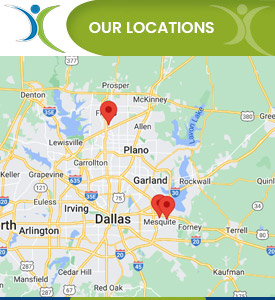Lysis of Adhesions in the Spine Treatment Specialist Serving DFW, Frisco, Sunnyvale, and Mesquite, TX
OmniSpine pain management offers lysis of adhesions to treat pain caused by conditions mostly associated with scar tissue around the spine. For more information, contact us today or book an appointment online. Our clinics are located in Frisco, TX, Sunnyvale, TX, and Mesquite, TX. We serve patients from Dallas TX, Frisco TX, Mesquite TX, Sunnyvale TX, Plano TX, Garland TX, Forney TX, Cedar Hill TX, Denton TX, Balch Springs TX, and surrounding areas.


Lysis of adhesions, also known as adhesiolysis, is a procedure that helps relieve pain caused by conditions mostly associated with scar tissue around the spine. These include failed back surgery syndrome, in which chronic pain develops from multiple surgical interventions attempting to correct unrelated problems with muscles or nerves in the spinal region. The disruption of the tissues from multiple surgical procedures, unfortunately, causes scar tissue to develop. It is estimated that this occurs in up to 25% of all spinal surgeries. Scar tissue is often located in the epidural space, the area between the spinal cord (the thick cord of nerves which sends information from all parts of the body to the brain) and the bones that surround and support it.
Scar tissue in this region can interfere with the normal sensory or motor functions dependent on the spinal cord. The spinal nerves that connect the spine with the rest of the body may also be affected by being physically compressed or impinged, by conditions like spinal stenosis. Inflammatory changes by injury and chronic inflammation can also lead to the development of scar tissue or damage it chemically by causing the release of inflammatory molecules into the epidural space. Lysis of adhesions treats this by reducing or removing this scar tissue. This procedure has demonstrably improved chronic pain conditions such as failed back surgery and spinal stenosis.
Lysis of adhesions is also beneficial in conditions related to spinal scar tissue including stenosis, in which nervous tissue is mechanically impinged upon or compressed by the accumulation of this tissue around it. Stenosis is a condition that results in pain, sensory disorders, or even the loss of motor control. The removal of these adhesions through lysis may result in a return to normal function and relief from pain for patients affected by these conditions. These results may last up to 12 weeks after treatment.
Lysis of adhesion procedures are mostly performed on the lower back. However, cases in which spinal stenosis affects the neck (cervical spine) are also possible. This may result in chronic pain in the neck or upper limbs. A recent trial demonstrated promising results in the application of adhesiolysis to this condition. This study showed that approximately 72% of the patients included had moderate to zero pain six months following their lysis of adhesion procedure.
The Procedure
The area of the spine that is to be treated is first cleaned and prepped in a sterile procedure. Because the procedure can take several hours to complete, IV sedation is given for optimal comfort of the patient. Under the guidance of fluoroscopy (a special form of X-ray), Dr. Morchower inserts a catheter (a small, thin plastic tube) into the spinal canal. The catheter is then advanced into the area affected with adhesions by using the real-time imaging of fluoroscopy.
Once in the spinal canal, a dye or contrast material is injected to highlight the location of scar tissue on the fluoroscopic monitor. Through the catheter, a solution made of substances that work to break up and soften scar tissue is then administered. This solution often includes enzymes, local anesthetics, steroids, and hypertonic saline that destroy scar tissue, relieve pain, and reduce inflammation. Throughout the entire procedure, the movement of the catheter is continuously monitored with the fluoroscope, ensuring safe and effective catheter positioning. Once the procedure is completed, a short period is required for recovery.
*Individual Result May Vary*





